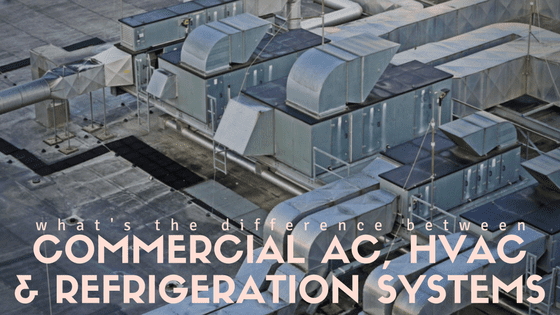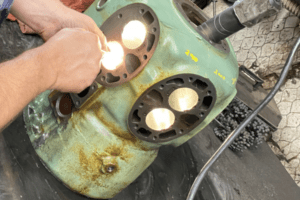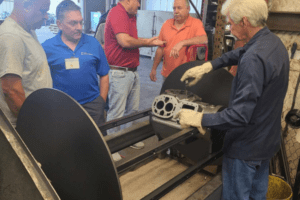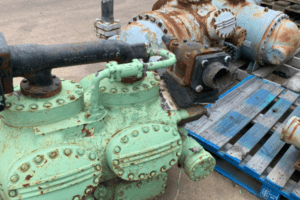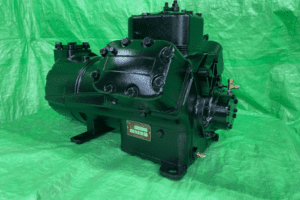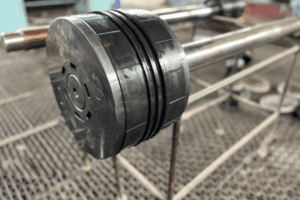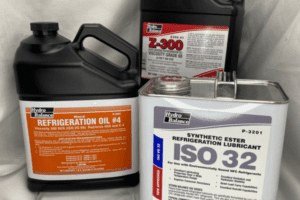When looking for commercial cooling systems, business professionals come across specific terms, such as “AC”, “HVAC”, and refrigeration systems. Although these systems seem functionally identical because they use virtually the same process to maintain the temperature levels required, there are some significant differences that should be considered in order to select the right systems for a commercial facility, as well as any spare compressor parts needed.
In this blog post, we cover some basic differences between AC, HVAC, and refrigeration systems.
Main Function
First off, the acronym “AC” stands for “air conditioning” and refers to systems that are typically used to keep buildings cool in the summer heat. “HVAC” stands for “heating, ventilation and air conditioning”, and indicates the systems that also provide heat. Because an HVAC system includes a central heating unit in addition to a central cooling system, it is more complex than an AC system. Besides providing thermal comfort, AC and HVAC systems control humidity levels and indoor air quality through ventilation.
Refrigeration systems are meant to keep adequate temperatures in enclosed spaces so that refrigerated goods stay properly chilled, and implicitly, fresh for longer periods of time and safe for consumption. In commercial and industrial applications, refrigeration processes remove heat from walk-in freezers, reach-in coolers, refrigerated display cases, industrial ice machines, and other spaces, without controlling the humidity.
Working Principle
In order to keep food fresh, refrigerators maintain a low temperature, which is often below the ambient temperature, to prevent or slow down the reproduction of harmful bacteria. To keep the temperature at the required level, a refrigerator uses specific components, such as a compressor, condenser, evaporator, capillary tube, and thermostat. The compressor, condenser, and evaporator work together to change the state of the refrigerant circulating inside them from vapor to liquid and then back, from liquid to vapor. This process allows the refrigerator to absorb and transport heat away from enclosed spaces, producing the desired cooling effect.
The working principle of air conditioning systems is identical to that of refrigeration systems. However, air conditioning doesn’t always involve cooling areas to temperatures below the temperature of the surrounding environment. Air conditioning basically means providing a comfortable indoor environment by maintaining temperature and humidity levels at pre-set values.
Air Circulation
Except for ductless AC units, AC and HVAC systems use supply and return air ducts and vents to remove heat and moisture from indoor environments, and distribute both cool and warm air evenly and efficiently throughout the building. Commercial refrigeration and freezing equipment don’t use ducts to circulate the air. Instead, some refrigeration units are equipped with fans for air circulation.
Type of Compressor
Depending on the HVAC/R equipment you have, components and spare parts should be selected according to certain characteristics. As an example, the selection of a compressor should be made in conjunction with specific criteria, as follows:
- Evaporating and condensing temperature – Both the evaporating and condensing temperatures indicate the temperature ranges over which a compressor is rated to operate. For instance, low pressure (low temp) systems, such as freezers, need compressors that can withstand evaporator and condensing temp below -4ºF; medium pressure (medium temp) systems, like food coolers and beverage dispensers, can work with compressors that operate at temperatures above -4ºF; high pressure (high temp) systems, like AC and HVAC units, need compressors that are designed to function at temperatures above 23ºF.
- Cooling capacity – To choose the right compressor for a refrigeration, AC, or HVAC system, the cooling capacity of the compressor under normal working conditions should be considered. The cooling capacity is determined by the mass flow rate of the refrigerant through the system and calculated according to the evaporating and condensing temperatures. The mass flow rate is dependent on the compressor’s displacement and volumetric efficiency.
- Ambient temperature – Before ordering a compressor, you should also take into account the highest expected ambient temperature in order to ensure that the compressor can function under specific conditions.
- Refrigerant – Compressor selection should be based not only on availability, performance, and efficiency but also on ecological considerations, including the ozone depletion and global warming potential of the refrigerant.
As the owner or manager of a commercial facility, you’re probably aware of the importance of having fully-functional commercial refrigeration and air conditioning systems. If it’s time to replace your equipment’s compressor, Compressors Unlimited offers a complete range of factory-new and remanufactured compressors that operate at different capacities and power levels to suit any business needs.

